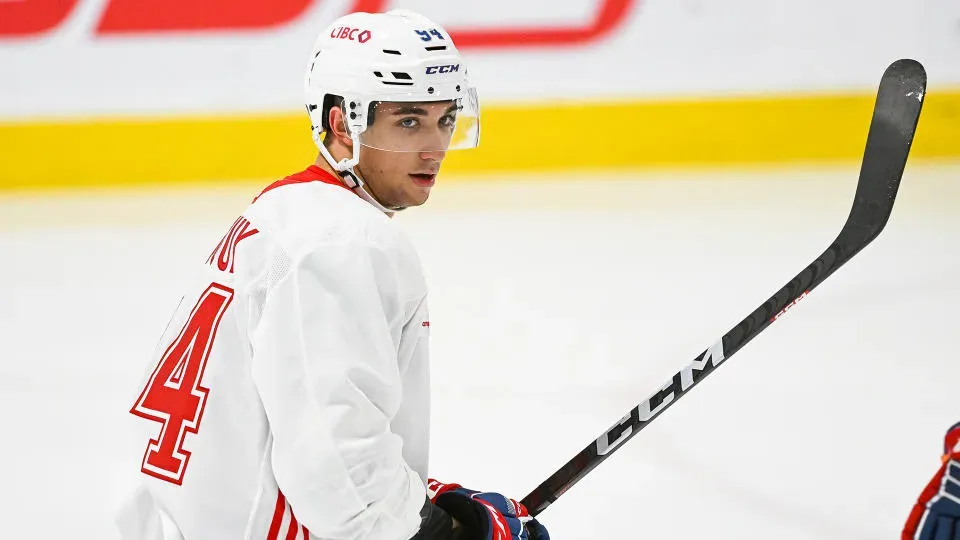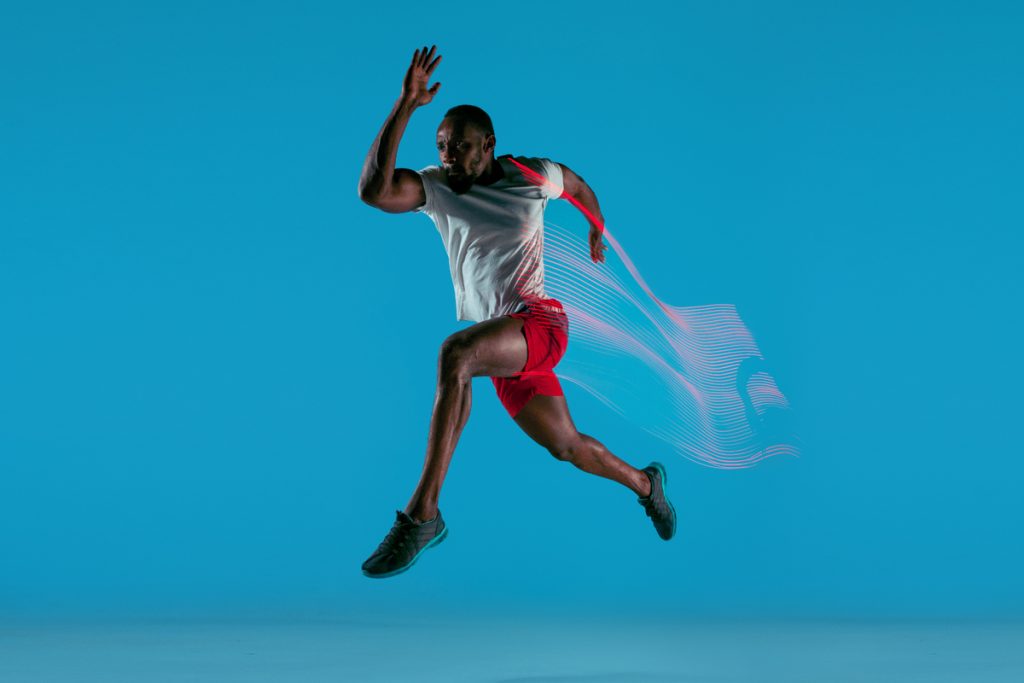The recent declaration of NHL players ineligibility for five members of Canada’s 2018 World Junior Hockey team has ignited intense scrutiny and discussion within the hockey community. Following a high-profile sexual assault trial and subsequent acquittal, players Michael McLeod, Carter Hart, Alex Formenton, Dillon Dubé, and Cal Foote found themselves facing an unexpected ban as the NHL conducts a thorough review of the trial’s findings. While the Ontario Superior Court deemed the evidence against them non-credible, the league’s stance highlights the ongoing tension surrounding athletes’ behavior and accountability. This decision has raised questions about the NHL review process and its alignment with the collective bargaining agreement, as the players and their association argue for their right to return to the ice after a full season of absence. The controversy illustrates the delicate balance between legal outcomes in hockey player trials and the league’s commitment to maintaining a safe and respectful environment in the sport.
In light of the recent events surrounding the acquittal of the five hockey players from Canada’s junior team, the concept of player ineligibility in the NHL has become a significant topic. The ramifications of legal rulings and their influence on athletes’ careers are now under the spotlight, particularly following the allegations of sexual assault that have surfaced from a well-publicized trial. As these athletes navigate the challenging landscape of public opinion and league policies, the intersection of justice and sports ethics becomes ever more prominent. Furthermore, the NHL’s review process raises questions about how such cases should be handled in accordance with collective bargaining agreements and player rights. As tensions rise and discussions continue, the focus on accountability, consent, and the responsibilities of professional athletes is pivotal in shaping the future of the league.
Understanding NHL Players’ Ineligibility
The recent acquittal of five members of Canada’s 2018 world junior hockey team has raised critical concerns within the NHL concerning player eligibility. Despite being found not guilty of sexual assault in a high-profile trial, the players—Michael McLeod, Carter Hart, Alex Formenton, Dillon Dubé, and Cal Foote—are currently deemed ineligible to participate in league activities. This situation stems from the NHL’s stringent review process, which considers the implications of their case on the integrity of the sport. Stakeholders often emphasize the importance of a thorough investigation to maintain the league’s reputation, especially in light of such serious allegations.
The league’s ruling highlights the balancing act between legal outcomes and the perception of morality in professional sports. While acquittal in court often signals a legal exoneration, the NHL’s decision points to the league’s responsibility to address public concerns. With the matter still under review, implications for players’ careers hang in the balance. The NHL’s approach suggests that, irrespective of a not guilty verdict, the nature of allegations—especially of sexual violence—can lead to significant consequences within the professional realm.
The Impact of Collective Bargaining Agreements on Player Rights
In recent developments, the NHL Players’ Association (NHLPA) has argued that the league’s decision to declare the acquitted players ineligible contradicts provisions within the collective bargaining agreement. The NHLPA contends that players should be afforded a right to resume their careers after enduring legal uncertainty, particularly as they have missed an entire season since the allegations first arose. This conflict underscores ongoing challenges in maintaining clear standards for player conduct, accountability, and the rights of athletes under contract.
The collective bargaining agreement represents a fundamental framework governing relationships between players and the league, outlining rights and responsibilities. The NHLPA’s stance on this issue indicates a broader concern for fairness and due process in handling cases of this magnitude. As both sides navigate this contentious issue, the resolution will likely define future protocols for similar situations and the balance between legalities and collective player rights in the face of serious accusations.
Exploring the Trial and Its Aftermath on Public Perception of Hockey Players’ Conduct
The recent trial involving the five NHL players has spurred intense media scrutiny and public discussion regarding the conduct of professional athletes. During the proceedings, Justice Maria Carroccia emphasized the lack of credible evidence against the accused, pointing to the demand for accountability within sports. The outcomes of such trials are often scrutinized not just for their legal implications but for how they shape societal views on consent and respect in sporting culture. A case like this can alter the public perception of hockey players, prompting more profound discussions about responsibility and the impact of personal conduct on professional careers.
Moreover, the discourse surrounding this case reflects the ongoing societal struggle with issues of consent, particularly within high-pressure environments like sports. The fallout from the case may trigger more rigorous guidelines and training within leagues to address consent and interpersonal boundaries. As the NHL grapples with its response, the need for a deeper dialogue about player behavior, consent, and public perception becomes increasingly vital.
The Role of Consent in the World of Sports
The concept of consent plays a pivotal role in the current discourse surrounding the acquitted players from the Canada World Junior Hockey team. Justice Carroccia’s conclusion that actual consent was present not only influences the legal landscape but also highlights important discussions around sexual conduct in sports. Even with a legal ruling stating the absence of guilt, the conversation doesn’t end there; players are now scrutinized in a public light that thrives on social accountability. Hockey, and sports in general, require ongoing conversations about consent and sexual misconduct, making incidents like this a catalyst for greater change across sports culture.
The arduous pendulum of justice is a reflection of broader societal issues. As athletes navigate their careers, they also find themselves in the center of evolving public expectations regarding consent and accountability. Clubs, leagues, and associations are increasingly being called to implement proactive educational initiatives aimed at preventing sexual misconduct. The fate of the NHL players currently ineligible to play reminds both the sports community and the public that the stakes are high, with consent standing at the forefront of discussions on athlete behavior, culture, and responsibility.
Navigating the NHL Review Process and Its Implications for Players
The NHL’s review process following the acquittal of the players is a crucial step in determining the future of these athletes. This internal investigation aims to assess the implications of the high-profile trial outcomes while considering the broader context of the allegations. The complexity of the league’s approach reflects its commitment to maintaining the integrity of the sport while also striving to uphold players’ rights as outlined in the collective bargaining agreement. The window of uncertainty for these players highlights the challenges faced by leagues in addressing sensitive issues without compromising their governance.
As the league continues its review, the implications for the players’ careers could be long-lasting. The NHL’s stance on the matter emphasizes that even a verdict of not guilty in criminal court does not negate the league’s responsibility to uphold community standards. As the process unfolds, it will undoubtedly impact how cases of this nature are handled in the future, serving as a benchmark for both the league and its players on the importance of conduct and the nuances of personal accountability.
The Intersection of Legal Outcomes and Sports Governance
The legal outcomes of the trial concerning the 2018 junior hockey players serve as a critical juncture at which sports governance, legal frameworks, and player rights collide. The NHL’s decision to exercise caution following the acquittal reflects an industry grappling with how to respond to allegations that have severe public and personal ramifications. Although the court found the players not guilty, the league must reconcile this with community standards and expectations regarding player conduct.
In such cases, the intersection of legal definitions and professional conduct becomes increasingly important. The NHL must navigate this territory with care, acknowledging both the judicial outcomes and the importance of maintaining a responsible and ethical league image. As public scrutiny intensifies, the decisions made during this period will likely inform the regulatory landscape of professional sports, setting precedents for how future cases may be handled.”}]},{
Frequently Asked Questions
Why are NHL players deemed ineligible after sexual assault acquittal related to the Canada World Junior Hockey controversy?
The NHL has determined that the five players who were acquitted in the sexual assault trial stemming from the Canada World Junior Hockey situation are ineligible to play while the league conducts a review of the judge’s findings. This measure is in line with the NHL’s commitment to addressing serious allegations, even if the players were not found guilty.
What does the NHL review process entail for players involved in sexual assault allegations?
The NHL review process for players facing serious allegations, such as sexual assault, involves a comprehensive evaluation of the judicial findings and related evidence. In the recent case involving the 2018 Canada World Junior Hockey players, the NHL is assessing the implications of the trial’s ruling on the players’ eligibility, aiming to maintain league integrity regardless of acquittal.
How does the collective bargaining agreement affect NHL players’ ineligibility amid legal proceedings?
The collective bargaining agreement stipulates that players should be able to return to play following legal acquittal. However, the NHL’s determination of ineligibility for the acquitted players from the Canada World Junior Hockey team has raised concerns from the NHL Players’ Association, suggesting potential inconsistencies with these contractual rights.
What are the consequences for NHL players acquitted of charges during a high-profile trial?
Despite being acquitted during the high-profile trial, the NHL players involved are facing ineligibility as the league reviews the circumstances surrounding the case. This decision highlights the NHL’s stance on serious allegations and its commitment to athlete accountability, despite not guilty verdicts.
What implications does the ruling from the Ontario Superior Court have on NHL players’ future eligibility?
The ruling from the Ontario Superior Court, which deemed the complainant’s evidence non-credible, does not automatically restore the players’ eligibility. The NHL’s ongoing review of the circumstances demonstrates that the league may still impose restrictions based on the nature of the allegations, even after an acquittal.
How does public perception influence the NHL’s decisions regarding player ineligibility in sexual assault cases?
Public perception plays a significant role in the NHL’s approach to player ineligibility in sexual assault cases. The sensitivity of the allegations, especially in the case involving the Canada World Junior Hockey players, forces the league to address the concerns of fans and stakeholders, aiming to foster an environment that values accountability and respects victims.
What actions has the NHL taken regarding player ineligibility following the acquittal in the Canada World Junior Hockey case?
Following the acquittal in the Canada World Junior Hockey case, the NHL has officially declared the involved players ineligible to play as it conducts a review of the judicial findings. This action was taken to address the serious nature of the allegations despite the outcome of the trial.
Why did NHL Commissioner Gary Bettman refer to the allegations in the Canada World Junior Hockey case as ‘abhorrent’?
NHL Commissioner Gary Bettman described the allegations in the Canada World Junior Hockey case as ‘abhorrent’ to underline the NHL’s zero-tolerance stance on sexual misconduct and to emphasize the seriousness of the issue, regardless of the trial’s outcome.
| Key Point | Details |
|---|---|
| NHL Player Ineligibility | Five players from Canada’s 2018 world junior hockey team are ineligible to play in the NHL while the league reviews allegations of sexual misconduct. |
| Acquittal | The players were acquitted of sexual assault charges but the NHL still deems them ineligible pending a thorough review. |
| NHL’s Position | The NHL emphasizes the serious nature of the allegations, stating a review is necessary despite the not guilty verdict. |
| Players’ Rights | The NHL Players’ Association argues this ineligibility decision contradicts existing agreements and seeks to allow the players to return. |
| Trial Insights | Justice Maria Carroccia’s ruling highlighted issues of consent, finding the complainant’s testimony to lack credibility. |
| NHL’s Response | Commissioner Gary Bettman condemned the alleged actions but deferred any penalties until after the legal process. |
| Ongoing Discussions | The NHLPA is actively seeking resolution and clarity for the players’ eligibility amid public and media scrutiny. |
Summary
NHL players ineligibility has become a pressing topic following the acquittal of five members from Canada’s 2018 world junior hockey team. While these players were declared not guilty of the alleged sexual assault, they remain ineligible to participate in NHL games during the league’s review process of the case. This situation has sparked significant debate about the balance between legal outcomes and league policies regarding player conduct, as well as broader societal concerns regarding accountability and consent in sports.



